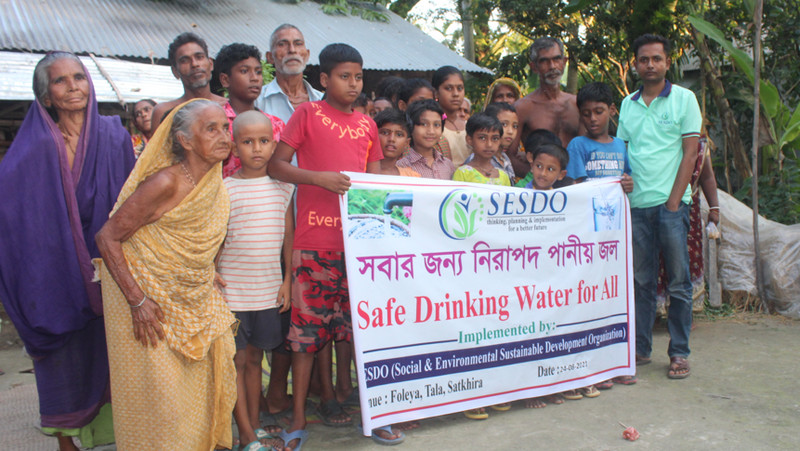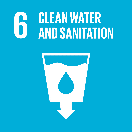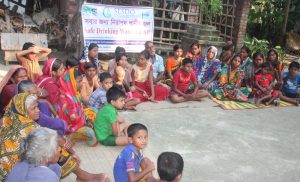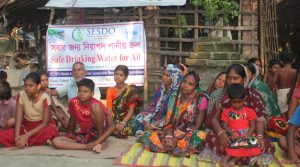Project Name: Safe Drinking Water and Sanitation

Project Beneficiaries: About 1000 people will directly benefit from this project.
Project Duration: 2021
| SDGs: |  |
Project Location:

Project Preface
Clean drinking water, the treatment and disposal of human waste, and other circumstances linked to public health are referred to as sanitation. Sanitation includes washing hands with soap after using the restroom and avoiding contact with human waste. The ability to maintain hygienic conditions through services like garbage collection, industrial/hazardous waste management, and wastewater treatment and disposal are both considered to be essential components of basic sanitation. Basic sanitation is defined as having access to facilities for the safe disposal of human waste like feces and urine.

Various reports that have been recently released state that 103 million people in Bangladesh need access to safe sanitation facilities, while 68.3 million lack access to safe drinking water. In addition, the country’s 61.7 million uninhabitable citizens lack access to even the most basic sanitation. The people of the southern region of our country are especially affected by this sanitation problem. As a result, the first and most important tool for ensuring their healthy quality of life is to provide them with a proper sanitation system or arrange for them to have access to basic needs such as sanitation so that they can live a healthy life. SESDO has implemented this project keeping these objectives in mind.
Project Significance
Maintaining proper sanitation enhances a community’s quality of life through promoting health, enhancing the environment, and improving the environment. The safe collection, transportation, treatment, and disposal of human wastes are referred to as sanitation. Reducing human exposure to pathogens in a safe manner is one of sanitation’s main objectives. Infected people excrete pathogens, which, if not properly confined or handled, could pose a risk to anyone who comes into contact with them. The major benefits of sanitation project are pointed out by the following description.
- limiting the emergence of antibiotic resistance.
- Encouraging respect and increasing safety, especially for women and girls.
- Girls’ school attendance is especially encouraged by the availability of separate restrooms.
- The possibility to safely utilize wastewater for irrigation in regions most impacted by climate change in order to reduce water shortages.

Apart from the points indicated above, the importance of the sanitation project is more comprehensive and huger. And considering these implications, the importance of the sanitation project is immense for SESDO.
